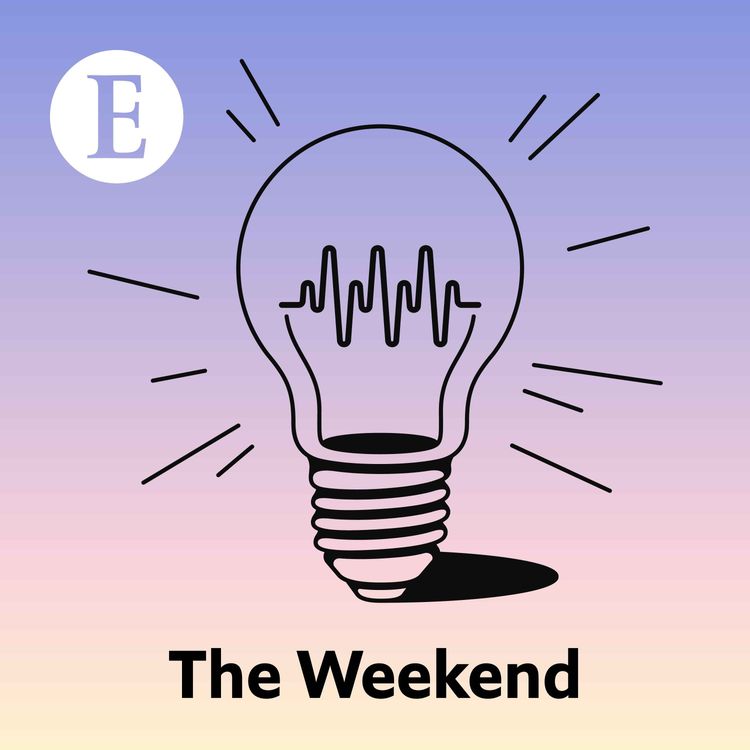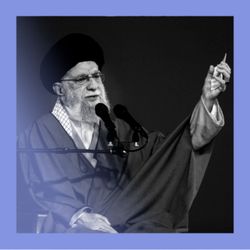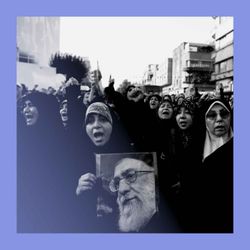Share

The Intelligence from The Economist
The Weekend Intelligence: Damascus, divided
When Economist correspondent Sarah Birke left Damascus in 2011 she wasn’t sure she’d ever return, or what she’d find if she did.
Then, in December, Syrian rebels unexpectedly captured the capital, toppling Bashar al-Assad's government and ending the Assad family's 53-year-long rule. Three months into its liberation, Sarah visited the city to see how it had been changed by more than a decade of war. What she found was a city uncertain about its future and divided by its past.
Listen to what matters most, from global politics and business to science and technology—Subscribe to Economist Podcasts+
For more information about how to access Economist Podcasts+, please visit our FAQs page or watch our video explaining how to link your account.
Music by Blue dot Sessions and Epidemic.
This podcast transcript is generated by third-party AI. It has not been reviewed prior to publication. We make no representations or warranties in relation to the transcript, its accuracy or its completeness, and we disclaim all liability regarding its receipt, content and use. If you have any concerns about the transcript, please email us at podcasts@economist.com.
Read more about how we are using AI.
More episodes
View all episodes

Not-deciding factor: Iran’s supreme leader
23:54|We examine the path of Ayatollah Ali Khamenei, once a bookish cleric underrated by everyone—including himself. He has hung on to power perhaps in part by not making decisions at crucial points. Our finance correspondent looks at the shifting wisdom on how best to manage an inheritance. And why India’s addresses are so long, complex and ultimately costly.Get a world of insights by subscribing to Economist Podcasts+. For more information about how to access Economist Podcasts+, please visit our FAQs page or watch our video explaining how to link your account.
Stayed in China: a domestic-brand boom
22:54|Western brands used to define cool and luxurious in China. No longer. Now consumers are turning to homegrown brands, some of which are becoming global tastemakers. Across Africa the Christian conservative movement is gaining ground fast—with a little help from American brethren. And why Britain is such a locus for the nuts and bolts of Formula 1.Get a world of insights by subscribing to Economist Podcasts+. For more information about how to access Economist Podcasts+, please visit our FAQs page or watch our video explaining how to link your account.
Truce and consequences: a fragile ceasefire in Iran
24:44|Iran’s strikes both before and apparently after a ceasefire began seem to threaten peace. If it holds, what will that mean for Iran’s ambitions, and for the wider region? A meeting of NATO-country leaders seems precision-engineered to appease the alliance’s most fickle member. And why Germany is considering cancelling one of its many public holidays.Additional audio courtesy of Chatham House's “Independent Thinking” podcast.Get a world of insights by subscribing to Economist Podcasts+. For more information about how to access Economist Podcasts+, please visit our FAQs page or watch our video explaining how to link your account.
No good options: how Iran will respond
22:29|After America’s strikes intended to destroy Iran’s nuclear programme, one question is whether they succeeded. Another is how Iran will respond; all of its options are bad ones. In the West people have been shedding religion for decades, but that secularist shift now seems to be slowing. And what is driving the decline of inverted commas (aka “quotation marks”).Get a world of insights by subscribing to Economist Podcasts+. For more information about how to access Economist Podcasts+, please visit our FAQs page or watch our video explaining how to link your account.Runtime: 22 minThe Weekend Intelligence: Teeth, pain and Ukraine
39:50|It began with a simple root canal. As Economist correspondent Wendell Steavenson reported on the war in Ukraine her teeth were locked in their own war– a struggle with pain that defied medical explanation. Her attempt to discover its cause led her to visit 48 dentists in seven countries. On The Weekend Intelligence, Wendell explores how war rewrites the body's pain signals—and why an entire nation may be suffering in ways medicine is only starting to understand.Hurry up and wait: Trump’s choice on Iran
24:13|The most consequential decision of Donald Trump’s presidency is now on pause for two weeks. We examine how the choice pits two sides of Mr Trump against one another. India is an advanced-manufacturing powerhouse, but can it become a hub for high-tech innovation, too? And as “Jaws” turns 50 our correspondent says its hero is probably not who you remember.Get a world of insights by subscribing to Economist Podcasts+. For more information about how to access Economist Podcasts+, please visit our FAQs page or watch our video explaining how to link your account.I’d like not to thank the academy: graduates’ fortunes slip
23:14|The workplace wisdom that a university degree is a sure-fire key to success is very much in question—and the trend started long before AI began eating jobs. Russia has launched yet another summer offensive in Ukraine, and appears to be going for broke. And our journalists share their picks for the year’s best books so far.Get a world of insights by subscribing to Economist Podcasts+. For more information about how to access Economist Podcasts+, please visit our FAQs page or watch our video explaining how to link your account.A house divided against itself: America simmers
24:23|Political assassinations. Troops on city streets. National protests. We examine the edgy mood inside America through the lens of past periods of intense, violent partisanship. Our correspondent sees two motives for the visit to Greenland by Emmanuel Macron, France’s president: one aimed at Donald Trump and another at Europe’s self-conception. And what AI learned from scans of the Dead Sea Scrolls. Get a world of insights by subscribing to Economist Podcasts+. For more information about how to access Economist Podcasts+, please visit our FAQs page or watch our video explaining how to link your account.Confused unity: the mood in Iran
23:28|A sudden war made Iran’s leaders look unprepared. And many Iranians loathe the regime. But there are no signs yet that internal dissent will shape the conflict. Shortly after Nayib Bukele became El Salvador’s president, he was labelled as the world’s first millennial dictator; now he is going after his critics. And remembering Valmik Thapar, tireless campaigner for India’s tigers.Get a world of insights by subscribing to Economist Podcasts+. For more information about how to access Economist Podcasts+, please visit our FAQs page or watch our video explaining how to link your account.